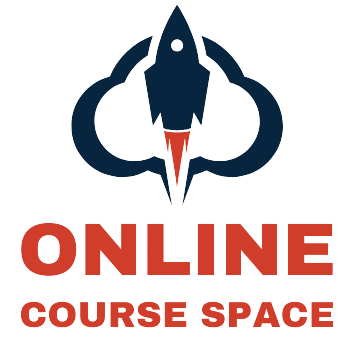JavaScript is a programming language used primarily for creating dynamic web content and adding interactivity to websites. It is a high-level, interpreted language that can be used both on the front-end (client-side) and back-end (server-side) of web development.
JavaScript was developed by Brendan Eich in 1995 while he was working at Netscape Communications Corporation. Initially, JavaScript was called Mocha and later renamed to LiveScript before finally being named JavaScript. The language was created as a complement to HTML and CSS, enabling web developers to create more dynamic and interactive websites.
Some of the key features of JavaScript include:
- Dynamism: JavaScript allows developers to create dynamic content that can respond to user actions or update automatically without requiring a page refresh.
- Interactivity: JavaScript can add interactivity to websites through features such as dropdown menus, form validation, and animations.
- Cross-platform compatibility: JavaScript can run on any platform that has a web browser, including desktops, laptops, tablets, and smartphones.
- Object-oriented programming: JavaScript supports object-oriented programming (OOP) concepts, allowing developers to create reusable code and improve the maintainability of their codebase.
JavaScript is widely used in web development and is a core technology for creating modern web applications. It is often used in conjunction with other web development technologies such as HTML, CSS, and various frameworks such as React, Angular, and Vue. It is also used in server-side development with Node.js, enabling developers to build full-stack web applications using a single programming language.
1. The Complete JavaScript Course 2019: Build Real Projects (Udemy)
The Complete JavaScript Course 2019: Build Real Projects is an online course offered on Udemy that covers a wide range of topics in JavaScript programming, from the basics of the language to advanced concepts such as OOP, ES6, and asynchronous programming.
The course is designed for beginners who want to learn JavaScript programming from scratch and build real-world projects using the language. The course is taught by Jonas Schmedtmann, a web developer and instructor with over 10 years of experience in the field.
The course covers the following topics:
- JavaScript basics: This section covers the basics of JavaScript programming, including data types, variables, control structures, functions, and arrays.
- Object-oriented programming: This section covers the principles of OOP in JavaScript, including objects, classes, and inheritance.
- Advanced JavaScript: This section covers advanced topics in JavaScript programming, such as closures, the DOM, and ES6 features like arrow functions, template literals, and destructuring.
- Asynchronous JavaScript: This section covers asynchronous programming in JavaScript, including callbacks, promises, and async/await.
- Building real-world projects: This section covers building real-world projects using JavaScript, including a budget app, a forkify app (a recipe search app), and a quiz game.
The course includes over 20 hours of video lectures, coding exercises, and programming assignments to help learners reinforce their understanding of the topics covered. The instructor also provides downloadable code files and supplementary materials.
The course is self-paced, meaning learners can work through the materials at their own pace. The instructor also provides support through a Q&A forum, where learners can ask questions and get help from the instructor and other learners.
Overall, The Complete JavaScript Course 2019: Build Real Projects is a comprehensive course that covers a wide range of topics in JavaScript programming, making it suitable for beginners who want to learn the basics of the language as well as experienced programmers who want to expand their knowledge of advanced JavaScript topics.
Key Highlights
- No coding experience necessary to take the course. You can go from being a complete beginner to a capable JavaScript developer.
- 3 projects including a feature-rich budget app
- A 5-minutes HTML and CSS crash course in the beginning and Node.js mini-crash course near the end of the course
- Learn Modern JavaScript: NPM, Webpack, Babel and ES6, ES7, ES8 and ES9 modules
- Understand Asynchronous JavaScript: The event loop, promises, async/await, AJAX and APIs
- Gain a deep understanding of how JavaScript works behind the scenes: execution contexts, hoisting, scoping, the ‘this’ keyword, and more
- Learn how to debug your code and understand other developer’s code
- Lifetime access to 28 hours downloadable video content, 11 articles and friendly and fast support. You also get a certificate of completion.
Duration : 28 hours on-demand video
Rating : 4.6
Sign up Here
2. Programming Foundations with JavaScript, HTML and CSS by Duke University (Coursera)

Programming Foundations with JavaScript, HTML and CSS is an online course offered on Coursera by Duke University. The course is designed to provide beginners with a foundational understanding of programming concepts using JavaScript, HTML, and CSS.
The course is taught by Dr. Susan Rodger, a Professor of the Practice in the Computer Science Department at Duke University, and provides learners with an interactive and hands-on learning experience through a series of video lectures, quizzes, and programming assignments.
The course covers the following topics:
- Basic programming concepts: This section covers fundamental programming concepts such as data types, variables, control structures, and functions.
- Web development basics: This section covers the basics of web development, including HTML and CSS syntax and structure.
- JavaScript programming: This section covers the basics of JavaScript programming, including data types, control structures, and functions.
- DOM manipulation: This section covers how to use JavaScript to manipulate the Document Object Model (DOM) and create dynamic web content.
- jQuery: This section covers the jQuery library, which is used to simplify DOM manipulation and event handling.
- Creating a website: This section covers how to use HTML, CSS, and JavaScript to create a basic website.
The course also includes programming assignments that allow learners to apply the concepts covered in the lectures and quizzes. Learners receive feedback on their assignments and can use the feedback to improve their programming skills.
By the end of the course, learners will have a solid understanding of basic programming concepts and web development using JavaScript, HTML, and CSS. They will also be able to create basic web applications and websites.
Key Highlights
- Highly rated with over 200,000 students enrolled
- Learn to write JavaScript programs using functions, for loops, and conditional statements
- Learn how to add interactivity on your website with JavaScript commands like alert, onClick, onChange, adding input features like an image canvas, button, and slider
- Learn to use HTML to construct a web page with paragraphs, divs, images, links, and lists
- Access to all videos, quizzes, and programming assignments
Duration : 4 weeks, 3 to7 hours per week
Rating : 4.6
Sign up Here
3. JavaScript Introduction Certification by W3C (edX)

The JavaScript Introduction Certification is an online course offered on edX by the World Wide Web Consortium (W3C). The course is designed to provide learners with a foundational understanding of JavaScript programming, covering the basics of the language and its use in web development.
The course is self-paced and includes video lectures, quizzes, and programming assignments. The course covers the following topics:
- JavaScript basics: This section covers the basics of JavaScript programming, including data types, variables, control structures, functions, and arrays.
- Document Object Model (DOM): This section covers the basics of DOM manipulation using JavaScript, including how to access and modify HTML and CSS content.
- Events and event handling: This section covers how to use JavaScript to handle events on web pages, such as mouse clicks and keyboard input.
- Forms and form validation: This section covers how to use JavaScript to validate form input and create dynamic forms.
The course also includes a final project in which learners are tasked with creating a basic web application using JavaScript and HTML.
The course is taught by experts from W3C and is suitable for beginners with no prior experience in programming. Learners who successfully complete the course and the final project will receive a certification from W3C, which can be shared on their LinkedIn profile or resume.
Overall, the JavaScript Introduction Certification by W3C is a comprehensive course that covers the basics of JavaScript programming and its use in web development, making it suitable for beginners who want to learn the basics of the language as well as experienced programmers who want to expand their knowledge of web development using JavaScript.
Key Highlights
- Learn HTML, CSS and standalone APIs usable through JavaScript
- Learn to make interactive websites using the JavaScript DOM API
- Learn to make basic graphics and animations using the HTML5 canvas
- Learn to use the basic concepts of ES2016, the last iteration of the JavaScript language
- Understand how to debug JavaScript code
- Get a verified certificate by paying a small fee
Duration : 5 weeks, 6 to 8 hours per week
Rating : 4.6
Sign up Here
4. The Complete Web Developer Bootcamp Course (Udemy)

The Complete Web Developer Bootcamp is an online course offered on Udemy that is designed to provide learners with the skills and knowledge needed to become a professional web developer. The course is taught by Dr. Angela Yu, a lead instructor at the London App Brewery, and includes over 50 hours of video lectures, quizzes, and programming exercises.
The course covers the following topics:
- HTML and CSS: This section covers the basics of HTML and CSS, including how to create web pages and style them using CSS.
- JavaScript: This section covers the basics of JavaScript programming, including data types, variables, control structures, functions, and objects.
- Node.js and Express: This section covers how to use Node.js and the Express framework to create server-side applications.
- APIs and databases: This section covers how to use APIs to interact with external data sources and how to work with databases using MongoDB and Mongoose.
- Authentication and security: This section covers how to implement authentication and security features in web applications, including how to use JSON Web Tokens (JWT) for user authentication.
- Deployment: This section covers how to deploy web applications using Heroku and how to optimize web pages for performance.
The course also includes several projects that allow learners to apply the concepts covered in the lectures and quizzes, including a fully-functional e-commerce website and a social media platform.
By the end of the course, learners will have a solid understanding of web development using HTML, CSS, JavaScript, Node.js, and various frameworks and libraries. They will also have several projects to showcase their skills to potential employers or clients.
Overall, The Complete Web Developer Bootcamp is a comprehensive course that covers a wide range of topics in web development and is suitable for beginners as well as experienced programmers who want to expand their knowledge of web development.
Key Highlights
- The only complete beginner full-stack developer course that covers NodeJS
- The only online course taught by a professional bootcamp instructor
- The course is constantly updated with new content, projects, and modules
- Build 13+ projects in this course, including a gigantic production application called YelpCamp
- Learn to write complex web apps with multiple models and data associations
- Lifetime access to 46.5 hours on-demand video with 79 articles and 85 downloadable resources
Duration : 46.5 hours on-demand video
Rating : 4.6
Sign up Here
5. HTML, CSS, and Javascript for Web Developers by Johns Hopkins (Coursera)

HTML, CSS, and JavaScript for Web Developers is an online course offered by Johns Hopkins University on Coursera. The course is designed to provide learners with a foundational understanding of web development using HTML, CSS, and JavaScript.
The course is taught by Dr. Yaakov Chaikin, an associate professor of computer science at Johns Hopkins University. The course includes video lectures, quizzes, and programming assignments. The course covers the following topics:
- HTML basics: This section covers the basics of HTML markup, including how to create web pages and add text, images, and links to them.
- CSS basics: This section covers the basics of CSS styling, including how to create style rules and apply them to HTML elements.
- JavaScript basics: This section covers the basics of JavaScript programming, including data types, variables, control structures, functions, and objects.
- Document Object Model (DOM): This section covers the basics of DOM manipulation using JavaScript, including how to access and modify HTML and CSS content.
- jQuery: This section covers how to use the jQuery library to simplify DOM manipulation and event handling.
- Bootstrap: This section covers how to use the Bootstrap framework to create responsive web pages that adapt to different screen sizes.
The course also includes several projects that allow learners to apply the concepts covered in the lectures and quizzes, including a simple web page and a responsive restaurant website.
By the end of the course, learners will have a solid understanding of web development using HTML, CSS, and JavaScript, as well as experience working with popular web development frameworks and libraries. They will also have several projects to showcase their skills to potential employers or clients.
Overall, HTML, CSS, and JavaScript for Web Developers is a comprehensive course that covers the basics of web development using HTML, CSS, and JavaScript and is suitable for beginners who want to learn the basics of web development as well as experienced programmers who want to expand their knowledge of web development.
Key Highlights
- Learn how to properly manipulate the web page components using the Javascript Document Object Model API
- Learn how to use AJAX to retrieve data from the server and dynamically update the content without having to reload the page
- Learn Responsive Design to help code up a web page that displays properly across all devices, whether mobile or desktop
- Learn enough Javascript to use additional Javascript libraries such as React, Angular
- Prepare to tackle large web application projects
- Several short readings, practice exercises, quizzes, coding assignments included in the course along with video lectures
Duration : 5 weeks, 4 to 6 hours per week
Rating : 4.8
Sign up Here
6. Learn Intermediate JavaScript Nanodegree Program (Udacity)

The Intermediate JavaScript Nanodegree Program offered by Udacity is a comprehensive online course that helps learners advance their skills in JavaScript programming. The course is designed for learners who already have basic knowledge of JavaScript and are interested in learning more advanced concepts.
The program is divided into two parts. In the first part, learners will build on their basic knowledge of JavaScript and learn more advanced topics such as asynchronous programming, object-oriented programming, and functional programming. They will also learn how to use popular JavaScript libraries and frameworks such as React, Redux, and Node.js.
In the second part of the program, learners will work on a capstone project where they will apply the skills they have learned to create a real-world JavaScript application. The project will be reviewed by experienced mentors who will provide feedback and guidance.
The Intermediate JavaScript Nanodegree Program includes the following courses:
- JavaScript Promises: This course covers the basics of asynchronous programming in JavaScript and how to use promises to handle asynchronous tasks.
- JavaScript and the DOM: This course covers how to manipulate the Document Object Model (DOM) using JavaScript to create dynamic web pages.
- Object-Oriented JavaScript: This course covers the basics of object-oriented programming in JavaScript, including how to create and use objects, classes, and inheritance.
- Functional Programming in JavaScript: This course covers how to use functional programming concepts such as higher-order functions, closures, and currying in JavaScript.
- AJAX and APIs: This course covers how to use AJAX and APIs to retrieve and display data from external sources.
- Single Page Web Applications with AngularJS: This course covers how to use the AngularJS framework to build single-page web applications.
- Full Stack Foundations: This course covers the basics of full-stack web development using JavaScript, HTML, CSS, and Python.
- Full Stack JavaScript: This course covers how to use the Node.js and Express frameworks to build full-stack JavaScript applications.
The Intermediate JavaScript Nanodegree Program is suitable for developers who have a basic understanding of JavaScript programming and are interested in expanding their knowledge and skills. The program is self-paced, and learners can complete it in approximately 4 months, depending on their schedule and pace.
Key Highlights
- Learn to encapsulate data and functionality by making use of object-oriented JavaScript
- Learn to use functional programming paradigm with Javascript
- Gain expertise in implementing asynchronous programming with JavaScript
- Program designed by experts who have years of experience working with Javascript
- Especially created real world and industry relevant projects for hands-on experience
- Each project is reviewed by the Udacity reviewer network and quick feedback provided
- Flexible and self-paced learning to match one’s own schedule
- Active student community to connect with fellow learners
- Mentor support and guidance by experts
Duration : 3 months, 10 hours per week
Rating : 4.6
Sign up Here
7. Interactivity with JavaScript by University of Michigan (Coursera)

Interactivity with JavaScript is an online course offered by the University of Michigan through Coursera. The course is designed to teach learners how to add interactivity to web pages using JavaScript.
The course is divided into four modules, each covering different aspects of JavaScript programming:
- Introduction to JavaScript: In this module, learners will be introduced to the basics of JavaScript programming, including data types, operators, control structures, and functions.
- DOM Manipulation and Event Handling: This module covers how to use JavaScript to manipulate the Document Object Model (DOM) and how to handle events such as clicks and keypresses.
- AJAX and JSON: This module covers how to use AJAX (Asynchronous JavaScript and XML) to retrieve data from external sources and how to work with JSON (JavaScript Object Notation) data.
- Building Interactive Web Applications: In this final module, learners will use the skills they have learned to build interactive web applications, including games, quizzes, and dynamic web pages.
Throughout the course, learners will complete quizzes and programming assignments to reinforce their understanding of the material. Learners will also work on a final project where they will build an interactive web application of their choice.
The course is self-paced, and learners can complete it at their own pace. The estimated time to complete the course is 15-20 hours. Learners who complete the course will receive a certificate of completion from the University of Michigan.
The course requires learners to have a basic understanding of HTML and CSS. No prior JavaScript knowledge is needed.
Key Highlights
- Designed and Instructed by renowned professors of University of Michigan
- Trusted by over 75,000 students who have already enrolled for the course
- Includes hours of video content, several readings, articles, quizzes and practice assignments
- Self-paced learning option
- Option to enrol for the Course for free, and add a verified certificate of completion at a small fee
Duration : 2 weeks, 7 hours per week
Rating : 4.7
Sign up Here
8. Programming for the Web with JavaScript by University of Pennsylvania (edX)

“Programming for the Web with JavaScript” is an online course offered by the University of Pennsylvania through edX. The course is designed to teach learners how to create interactive web pages using JavaScript.
The course is divided into four modules, each covering different aspects of JavaScript programming:
- Basic JavaScript: In this module, learners will be introduced to the basics of JavaScript programming, including data types, operators, control structures, and functions.
- The Document Object Model: This module covers how to use JavaScript to manipulate the Document Object Model (DOM) and how to handle events such as clicks and keypresses.
- Advanced Topics: This module covers more advanced topics in JavaScript, including working with objects, arrays, and regular expressions.
- Building Web Applications: In this final module, learners will use the skills they have learned to build a web application that interacts with an external API (Application Programming Interface).
Throughout the course, learners will complete quizzes and programming assignments to reinforce their understanding of the material. Learners will also work on a final project where they will build an interactive web application of their choice.
The course is self-paced, and learners can complete it at their own pace. The estimated time to complete the course is 6-8 weeks, with a recommended effort of 8-10 hours per week. Learners who complete the course will receive a certificate of completion from the University of Pennsylvania.
Key Highlights
- Understand the fundamentals of how data is exchanged on the World Wide Web (WWW) and what tools and frameworks are available for creating robust, interactive web applications
- Learn modern web frameworks and component-based libraries such as React.js for efficiently developing modular web page components
- Learn to work with D3.js for creating data-driven documents
- Learn to use JavaScript Object Notation (JSON) and access RESTful APIs on the web
- Understand how to integrate JavaScript frameworks with NoSQL databases such as MongoDB
- Enrol for the course for free. Can add a verified certificate at a fee
Duration : 4 weeks, 6 to 8 hours per week
Rating : 4.6
Sign up Here
9. Modern JavaScript From The Beginning (Udemy)

“Modern JavaScript From The Beginning” is an online course offered by Brad Traversy on Udemy. The course is designed to teach learners modern JavaScript concepts and best practices from the ground up.
The course covers the following topics:
- JavaScript Fundamentals: In this section, learners will learn the basics of JavaScript programming, including data types, operators, control structures, functions, and objects.
- DOM Manipulation & Events: This section covers how to use JavaScript to manipulate the Document Object Model (DOM) and how to handle events such as clicks and keypresses.
- Fetch API & Ajax: This section covers how to use the Fetch API to make HTTP requests and how to work with JSON data.
- ES6+ Features: This section covers new features introduced in ECMAScript 6 (ES6), including arrow functions, template literals, destructuring, and modules.
- OOP: In this section, learners will learn object-oriented programming (OOP) concepts in JavaScript, including classes, inheritance, and polymorphism.
- Asynchronous JavaScript: This section covers asynchronous JavaScript concepts, including callbacks, promises, and async/await.
- JavaScript Patterns: This section covers common JavaScript design patterns, including the module pattern, factory pattern, and observer pattern.
Throughout the course, learners will complete quizzes and programming assignments to reinforce their understanding of the material. Learners will also work on several projects throughout the course, including a task list application and a weather app.
The course is self-paced, and learners can complete it at their own pace. The estimated time to complete the course is 21 hours, with a recommended effort of 3 hours per week for 7 weeks. Learners who complete the course will receive a certificate of completion from Udemy.
Key Highlights
- Vanilla JavaScript course that teaches modern JavaScript from start to finish
- Learn to build things without frameworks
- Learn your way around the DOM without using JQuery
- Learn about design patterns and how to structure applications
- Lifetime access to 22 hours of video content, articles and 111 downloadable resources
Duration : 21.5 hours on-demand video
Rating : 4.7
Sign up Here
10. ES6 Javascript: The Complete Developer’s Guide (Udemy)

“Modern JavaScript From The Beginning” is an online course offered by Brad Traversy on Udemy. The course is designed to teach learners modern JavaScript concepts and best practices from the ground up.
The course covers the following topics:
- JavaScript Fundamentals: In this section, learners will learn the basics of JavaScript programming, including data types, operators, control structures, functions, and objects.
- DOM Manipulation & Events: This section covers how to use JavaScript to manipulate the Document Object Model (DOM) and how to handle events such as clicks and keypresses.
- Fetch API & Ajax: This section covers how to use the Fetch API to make HTTP requests and how to work with JSON data.
- ES6+ Features: This section covers new features introduced in ECMAScript 6 (ES6), including arrow functions, template literals, destructuring, and modules.
- OOP: In this section, learners will learn object-oriented programming (OOP) concepts in JavaScript, including classes, inheritance, and polymorphism.
- Asynchronous JavaScript: This section covers asynchronous JavaScript concepts, including callbacks, promises, and async/await.
- JavaScript Patterns: This section covers common JavaScript design patterns, including the module pattern, factory pattern, and observer pattern.
Throughout the course, learners will complete quizzes and programming assignments to reinforce their understanding of the material. Learners will also work on several projects throughout the course, including a task list application and a weather app.
The course is self-paced, and learners can complete it at their own pace. The estimated time to complete the course is 21 hours, with a recommended effort of 3 hours per week for 7 weeks. Learners who complete the course will receive a certificate of completion from Udemy.
Key Highlights
- Learn the purpose of Babel and why ES6 was created
- Understand the major features of ES6 and Know the difference between ES6 and ES2015
- Practical examples on the applications of Array Helpers, Generators and Iterators
- Learn about destructing, Arrow functions and improved object syntax
- Master the process of refactoring your current ES5 code into super-charged ES6
- Develop complex applications that scale in complexity by mastering advanced ES6 design patterns
- Grasp the difference between the ‘rest’ and ‘spread’ operators
- Dive deeper into iteration using generators
- Get full lifetime access to 6 hours of video content with articles and 36 coding exercises
- Get a certification of completion upon finishing the course
Duration : 6 hours of on-demand video
Rating : 4.5
Sign up Here





